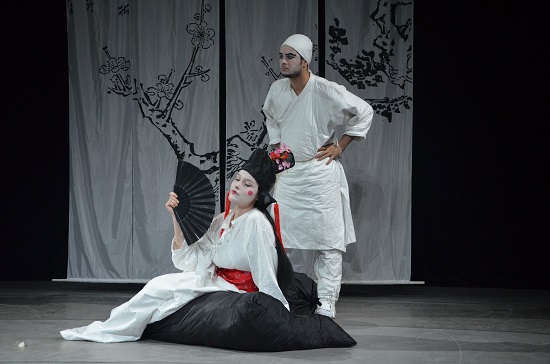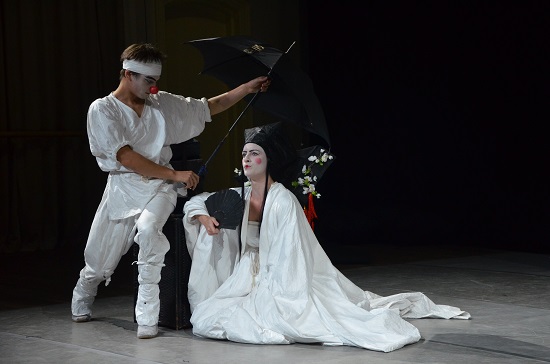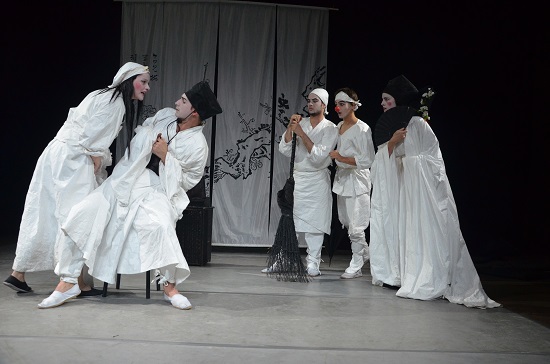25 October 2014
On 22 October, when the Rising Artists’ Works 2014 (RAW 2014) was getting close to its conclusion, Sauvee par une conquette & Le Reve du papillon, the small theatre play performed by the joint team of Conservatoire national supérieur d'art dramatique de Paris and Université de Lyon, was staged at the New Space Theatre of the Shanghai Theatre Academy.
The play was adapted from two masterpieces of Guan Hanqing’s Yuan dynasty poetic drama. Bernard Sobel, the French director in his 70s, stood for more than two hours continuously taking control of the entire performance. He said after the performance, “I want to present true, simple and pure Guan Hanqing.” This is Guan Hanqing in the eyes of the French, one that is simplified by removing all the superfluities. He is the Chinese symbol and oriental symbol in the eyes of the westerners, which also carry the universal values.
This play was previously staged in Paris in September this year. Since the reform of traditional Chinese opera, there has hardly been any performance of a full-length Yuan dynasty poetic drama even in today’s China. But, Bernard Sobel said, “why not to perform it? The French people also need this play.” As a renowned director in France, Bernard Sobel has paid the highest respect to this ancient Chinese playwright who lived over one thousand years ago and oceans apart. He regards Guan Hanqing as a poet and wanted the whole world to gain a panoramic understanding of this great poet.
Similar to The Caucasian Chalk Circle which is also adapted from traditional Chinese opera, this play Sauvee par une conquette & Le Reve du papillon tells the traditional Chinese stories with the western performing system. These stories are still meaningful in today’s world and contain lots of elements that are worth of our thought.
Sauvee par une conquette & Le Reve du papillon presented a great play-watching experience. Our foreign friends have treasured such kind a thing that we are quickly forgetting and transformed the play script that we only get to read in the textbooks into a stage performance once again in a way that is acceptable to modern people. Does this trigger some rethinking of us as the inheritors of the Chinese civilization?






